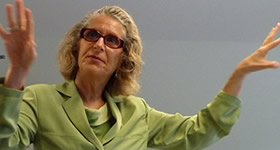I remember it this way: Bill enlisted in the Army because the military was drafting into the Marines. We all knew that the Army would be a better risk than the Marines.
I don’t remember the year he signed up. I graduated with my B.A. in 1970. So Bill graduated in 1968. No more student deferment. Maybe he joined up in late 1968 or 1969. We’d been dating for 3 years by then.
Who does one kill in war?
Soldiers kill soldiers. Men only, for so long. But in today’s wars, women, too.
Who are the soldiers? Adults. But not always. Some soldiers are not just young, they’re actually kids.
Bombs and soldiers kill civilians. Women and men. Boys and girls. Old and young. We kill civilians mostly by accident. Sometimes out of fear. And, rarely, with vicious, malicious intent.
My dad told a story once. Maybe he told it to Bill after Bill returned from Nam. There was a young German soldier in a foxhole. Dad kept telling him to get out of the foxhole. The soldier dropped his gun and held up his arms. Dad kept gesturing with his rifle and yelling, “get out or I’ll shoot” But the soldier didn’t. So my dad shot and killed him. And when dad got to the foxhole, he saw why the young German didn’t evacuate the foxhole: his legs were blown off.
Bill told a similar story. A young Vietnamese boy, maybe 12 years old, walked towards a platoon on patrol. In his hand: a Coca-Cola bottle. Bottles were often grenades. The boy wouldn’t drop the bottle. Shots rang out.
My brother Philippe was 12 years old that year, perhaps the age of that young Vietnamese boy. Did I ever tell you that story, Philippe, when you were older?
Dad and Bill and all the other scared soldiers facing scared soldiers and young boys. Acting to protect one’s self and one’s comrades – and killing.
Who does one kill in war? A little bit of oneself. It isn’t just soldiers that kill a bit of themselves; it’s our non-combatant citizens and our governments – our society itself.
[From “My own story of war,” which I began writing in summer 2009 and completed in spring 2011. Read the entire piece in the Free Download Library on my website.]

